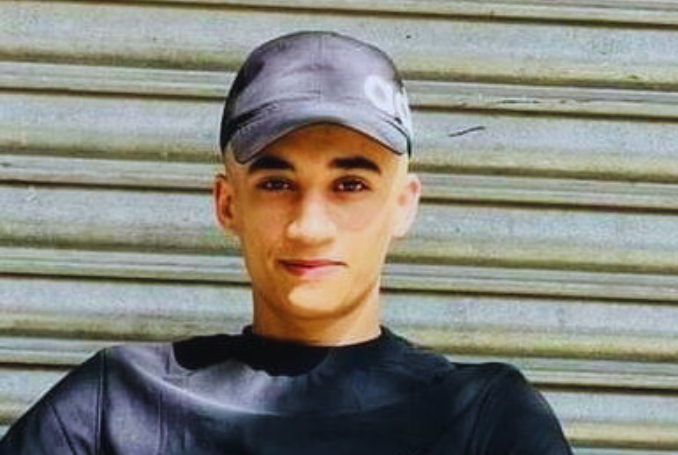
The policy of collective punishment against the families of ‘wanted persons’ has long been adopted by Israel but intensified in conjunction with the ongoing aggression on the Gaza Strip.
Dunia Dawoud, 52, is still in mourning over her son Tariq, 17, who was killed by the Israeli occupation army several days ago near Qalqilya, north of the West Bank.
Tariq was only released last November by the Israeli occupation authorities along with other Palestinian boys on an exchange deal for a number of Israeli detainees held by the Resistance Movement Hamas in the Gaza Strip.
Following his release, Israel claimed Tariq was a ‘wanted person’ for allegedly joining armed groups in the refugee camps located in the northern West Bank.
During this period, Israel was on the lookout for Tariq, constantly chasing after the young boy. Not content with this, the Israeli army also subjected his family to all forms of repressive measures, which included arresting his parents and siblings and raiding his home dozens of times.
The policy of collective punishment against the families of ‘wanted persons’ has long been adopted by Israel but intensified in conjunction with the ongoing aggression on the Gaza Strip.
This policy has reached the point of punishing members of families of ‘wanted persons’ or those imprisoned in an attempt to achieve what it labels as the ‘Deterrence Equation.’
This policy, however, did not affect the growth of armed resistance in the West Bank. Nonetheless, it did not deter Israel from pursuing it either.
Humiliating a Family
During the period the Israeli army was on the lookout for her son, Tariq’s mother was arrested 14 times, in order to pressure the boy to surrender himself.
On each arrest, Dunia was subjected to verbal violence, shoving, restraining, blindfolding, and being forced to stay for hours in the extreme cold or heat before being released after several days and then re-arrested again.
“One time, they forced me to take off all my clothes, then they searched me, tied me up, and placed me blindfolded in a portable iron room. When they unblindfolded me, I found myself in a room with seven captive men,” she said.
Tariq’s father was also arrested more than ten times even though he suffers from diabetes and nerve problems in his hands. He was handcuffed anyway until he started screaming.
Maher and Khaled, Tariq’s brothers, were also arrested and abused. On one occasion, Maher was badly beaten while tied up and left naked in the open. Israeli soldiers prevented him from going to the bathroom and forced him to urinate on himself while they laughed and filmed him.
“In addition, my son-in-law was arrested, beaten, and insulted, and the homes of Tariq’s uncles were broken into and vandalized,” Dunia explained.
“They kept telling me to ask him to surrender himself, they would say things like ‘go and bring him home,’ and although I told them that I did not know his whereabouts, they continued to insult me and arrest me because their goal was to frighten me and his family,” Dunia continued.
‘Barbaric Practices’
Another form of collective punishment used by the occupation army in the West Bank is the bombing of homes belonging to Palestinians who are allegedly involved in military operations.
Over the last two weeks, the Israeli army blew up the homes of three prisoners it claimed were involved in a shooting attack near Ramallah, which resulted in the death of a Palestinian.
Ahmed al-Barghouti, brother of prisoner Ayser, told the media that his house in Ramallah was recently bombed as a form of punishment.
“The Israeli occupation army believes that this might build frustration or constitute psychological harm, or even that the prisoner will lose the social support he enjoys. They want this to be a lesson to other Palestinians not to follow suit in his footsteps,” Ahmed told The Palestine Chronicle.
According to al-Barghouti, these measures are “merely barbaric practices” aimed at revenge but do not truly affect Palestinians.
Imad Abu Hawash, researcher at the Palestinian Center for Human Rights, told the Palestine Chronicle that these measures are not new and are part of the British Emergency Law issued in 1945.
The law especially targets those accused by Israel of carrying out resistance operations and has been in effect on Palestinians living in the West Bank, Jerusalem, and Palestine 1948.
The practice is implemented through the arrest of relatives, travel bans, along with bombing or sealing their homes.
Israel has demolished or blown up over the past years hundreds of homes as part of this policy.
Abu Hawash said that most of the bombings and house demolitions are carried out by military order, without an Israeli judicial order.
“Article 33 of the Fourth Geneva Convention entails the protection of civilians in the event of war and prohibits the implementation of collective punishment and the punishment of any protected person for a crime he did not commit, but of course, Israel doesn’t care about this convention,” Abu Hawash concluded.
Collective Punishment is a cruel tool adopted by Israel to exert pressure on the families of ‘wanted persons’.
However, what Israel seems to have ignored since the beginning of its occupation of Palestine is that these measures only increase the determination of Palestinians to continue their struggle for liberation.
(The Palestine Chronicle)
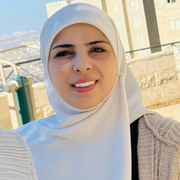
– Fayha’ Shalash is a Ramallah-based Palestinian journalist. She graduated from Birzeit University in 2008 and she has been working as a reporter and broadcaster ever since. Her articles appeared in several online publications. She contributed this article to The Palestine Chronicle.

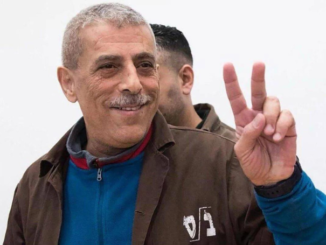
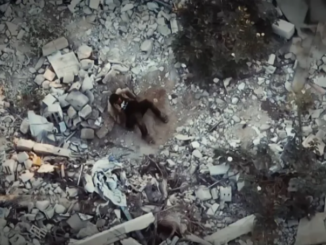
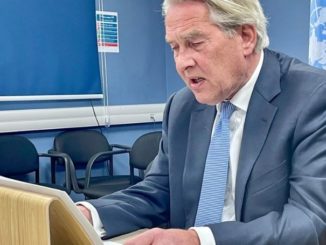




These stoic people are not giving up. Document and publish as much as you can. The mad rats can’t help themselves ; their fear and loathing is ramping up as they know the end will come.
And it ain’t gonna be pretty as they’ll try to take the whole region out with them.
Babylonian voodoo worshipping Nazis.